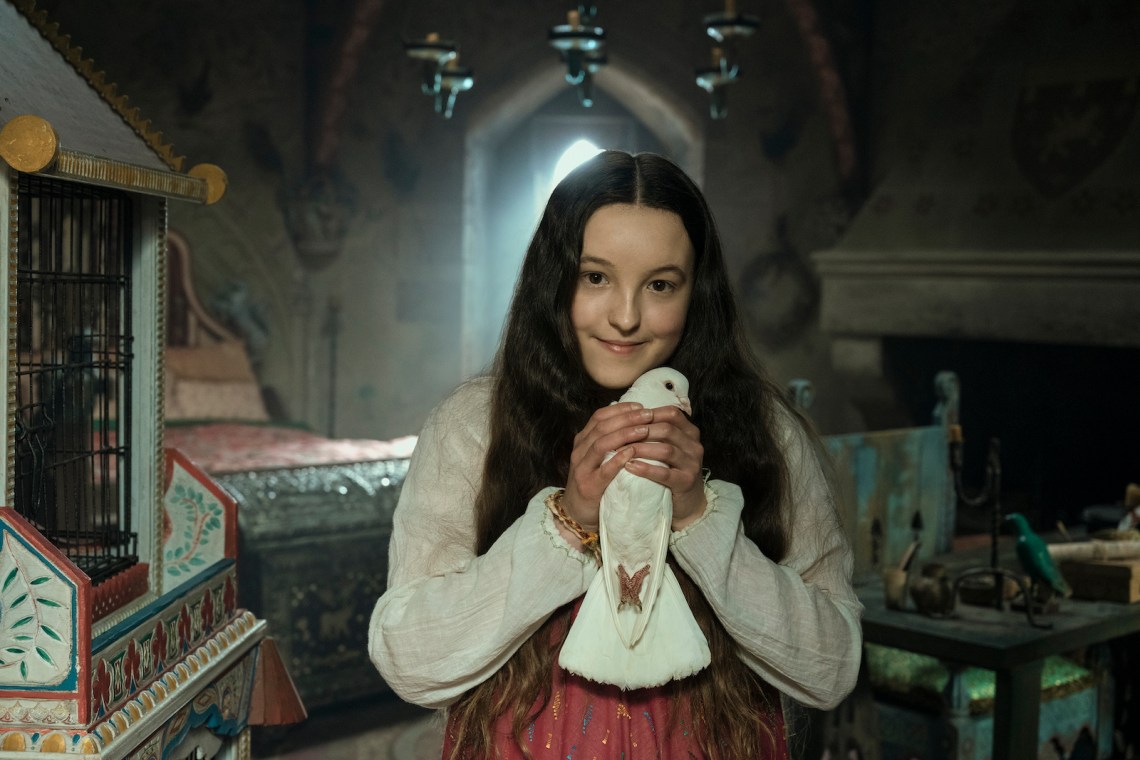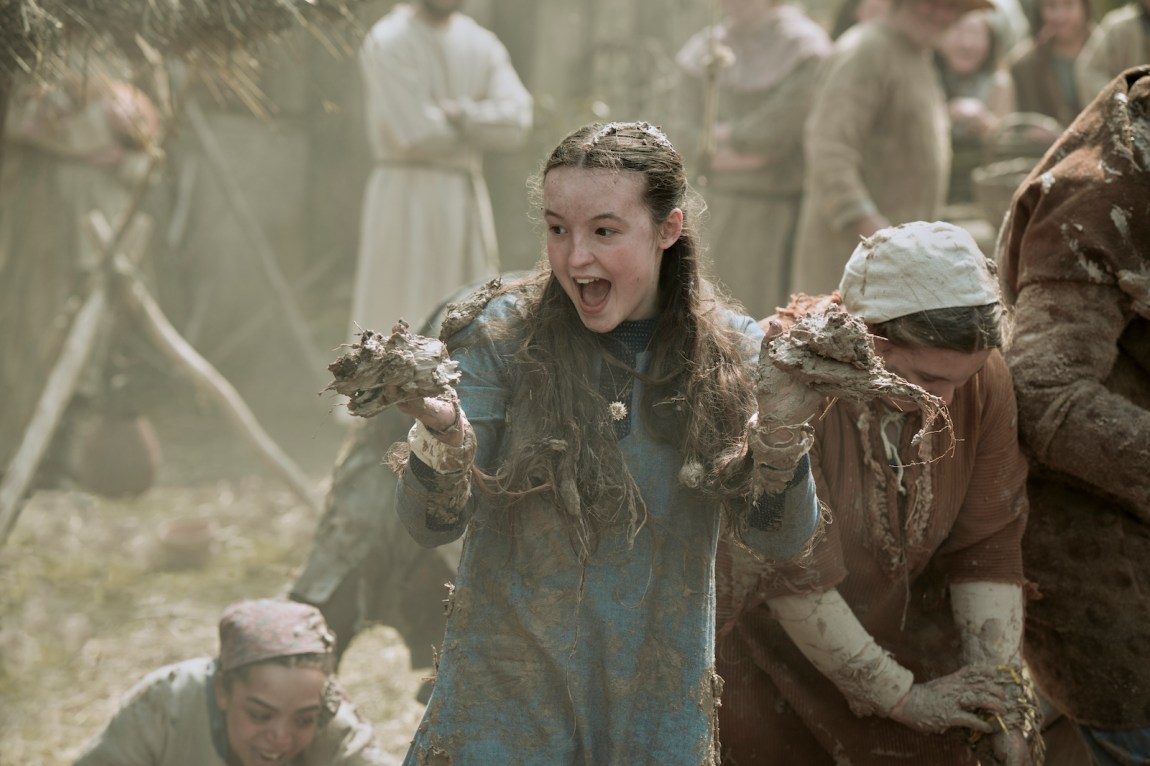On June 24, 2022, hours after Roe v. Wade was overturned by the US Supreme Court, the Instagram account @medievalmarginalia posted a cheeky image from an illuminated manuscript. It shows a naked woman trying to pull a surprised though not uncurious man into her bed by his shirt, which, gathered into her eager fist, looks very much like a giant penis. The caption seems, at first, incongruous. “YES,” it begins in the stylized fury of all-caps, “PEOPLE W/WOMBS HAVE BEEN PRACTICING ABORTION AND USING CONTRACEPTION FOR THOUSANDS OF YEARS.” This is followed by the melting-face emoji and a few sentences from an essay by the scholar Roland Betancourt, explaining that in the Middle Ages “good Christian women were indeed” avoiding or ending pregnancies and, what’s more, doing it “without shame.”
The response was predictable: a chorus of support interrupted by frantic denunciations. Some commenters focused on abortion’s iniquity (“The sin is old”) but just as many pounced on the phrase “people with wombs,” used in place of the more conventional “women.” “People with wombs[?]” wrote one, “Why has feminism become about erasing women?” I have always suspected that such criticisms are less about the fear that women are being erased than they are expressions of an unconscious resistance to hearing women as well as people with wombs described as “people.” Smuggled inside them is the assumption that humanity is male in the most orthodox and restrictive sense of the term, and that anybody who doesn’t fit the bill cannot be described rightly or in general as a human being.
That women or, more particularly, teenage girls are indeed people is the substance of a sad, wrathful speech delivered by fourteen-year-old Catherine, the heroine of Lena Dunham’s new film Catherine Called Birdy, a coming-of-age comedy set in the year 1290 and based on Karen Cushman’s 1994 novel of the same name. Catherine, or Birdy to her friends, is played by Bella Ramsey, who has the face of one of Rogier van der Weyden’s Madonnas and something of the inimitable physical manner of Joy Division frontman Ian Curtis, at once angular and uncontained. To hear her shout that men should not “get to decide who we are or where we go or how much we cost like we’re just things” is to make out the notes of real moral tragedy playing beneath the film’s otherwise upbeat strain. Birdy’s rhetoric is modern but the sentiment is venerable and the patriarchy, deathless.
Cushman’s novel, which won the Newbery Medal in 1995, takes the form of a diary. Birdy, the only daughter of a small-time nobleman, keeps one on the advice of her brother Edward, a monk who lives an enviable, artistic life at the nearby abbey. The book follows Birdy as she tries to delay the inevitable: marrying a man who will give her father some gold or silks or even a parcel of land in exchange for the use of her womb. The novel ends with Birdy reconciling herself to her fate, which, thanks to a sudden twist, may not be quite as grim as expected. It certainly won’t be as lurid as the brief synopses of saint’s lives with which she gleefully prefaces each of her entries: “2nd day of December, Feast of Saint Bibiana, beaten with leaden whips until she died,” “22nd day of June, Feast of Saint Ebbe the Younger, who cut off her nose to protect her virtue from marauding Danes,” and so on.
Cushman suffuses Birdy’s narration with a profound loneliness, interspersed with surprisingly unsentimental descriptions of medieval life. Early in the book, Birdy becomes entranced by a band of Jewish refugees who are leaving the country following King Edward I’s Edict of Expulsion, which formally banished all Jews from England (they were not allowed to return until the mid-1650s, under the government of Oliver Cromwell). Amazed that the Jews do not, in fact, have horns or tails, Birdy toys with the thought of running away with them before being distracted by a local fair. Later she attends a hanging, her excitement curdling when she sees that the two bandits who are about to be executed are children of “no more than twelve years old, skinny, frightened, and dirty.” When one grabs Birdy’s sleeve to beg for help, she sprints out of the village and throws up her lunch of bread and sausage.
Birdy also works, constantly. She makes soap (“the bubbling mess stinks worse than the privy in summer”), spins wool, and gets medical training from her mother, whose role as mistress of the house includes looking after the health of her husband’s tenants. Birdy uses “garlic and goose fat” to treat her nurse’s boils and her father’s clerk’s “inflammation of his eyes,” and doles out “an oil of bay” for a local priest “infested with boils and blotches”; she spends whole days “doctoring ale head, grumbling guts, and various cuts, gashes, scratches, and burns” and, when her mother spikes a fever after giving birth, rubs “her back with an ointment of wild poppy and oil of violets.” In one memorable reflection, Birdy wonders, “Why is a lady too gentle to climb a tree or throw stones into the river when it is lady’s work to pick maggots from the salt meat?”
Advertisement
*
Dunham’s Catherine is a more boisterous affair, and at first her Birdy has little to do except be a pain in the ass. There is certainly no doctoring. On the contrary, Birdy’s ignorance regarding the workings of her body is a major theme. Two minutes into the film, she tells her nurse that she has finally learned where babies come from. “A man,” she says, “is going to take a heated iron poker…stick it up my nose until there is a space big enough for his whole thumb, after which he will press seeds into my brain, and they trickle down my throat into my gut, where they take root for nine months before popping out my bum.” Six minutes after that, she discovers blood around that same orifice and concludes she must be dying. “For the love of a God greater than I,” her nurse clucks, “it comes from the other hole.” “What other hole?” she asks, baffled.
Birdy’s period is the film’s McGuffin, its arrival triggering a line of suitors, each more repugnant than the next, at the manor door. This too is a departure from the book, in which her father makes plans “to sell her like a cheese” simply because she is a fourteen-year-old girl and her number is up. In Dunham’s version, Birdy tries to hide the fact that she’s now menstruating from her family, stuffing bloody rags under the floorboards of the communal toilet (in the novel, she buries her unfinished embroidery). Who can blame her? This was an age where the best-educated men in Europe would confidently declare—as the thirteenth-century Franciscan monk Bartholomeus Anglicus did in his encyclopedia, On the Properties of Things—that menstrual blood seeped into the uterus like “filthe into a goter,” and was so toxic that a couple of drops would melt glutinum aspalti, which is to say, cement.
The garish misogyny of the Middle Ages is no secret, and Dunham doesn’t belabor it. The world she creates is warm, welcoming, and full of low-drama pleasures like rolling around in the mud, eating cake, dancing, lying on a riverbank, and making out. It also features a number of female characters who, we are to understand, have fought to make a bearable place for themselves in the world, among them Birdy’s mother, who has given birth to multiple stillborn children but seems to adore her husband, the always, even exhaustingly, magnetic Andrew Scott. (Without giving too much away, Scott’s trademark blend of boyish sweetness and faintly sinister volatility makes the film’s ending almost believable although, since it requires Dad to come to the rescue, also somewhat frustrating.) There is a “devoted writer of sonnets” as well, played by Mimi Ndiweni, thrillingly unintimated by her tyrannical husband but well aware she is under his command.
The most vivid of these women is the widow Ethelfritha, whom Birdy’s beloved Uncle George marries for her money. As Ethelfritha, Sophie Okonedo slyly transforms from an eccentric middle-aged woman literally jumping for joy as her hot young husband pushes a wedding ring onto her finger to a kinetic blur of sensuality and self-determination who teaches Birdy how to eat an orange and lets her feed her enormous pet owls. “These are more than birds, they’re creatures” she whispers in Birdy’s ear, as the owls rustle powerfully around their cage, “I am a creature too, you know.”
What does this mean? We might assume that a creature is something wild and not quite human, a purely animal being that does not give much thought to its own flourishing but simply lives. Okonedo’s performance suggests something else. It suggests that our pleasures have to be wrested back from the societies that have forbidden or misused them, and that the refusal to go through life without joy is what makes humans the special kind of creatures they are. Cushman presents a similar idea from a more melancholy angle. After Birdy complains that she can’t do the things Uncle George or her friend Perkin the goatherd do, the matriarch of that wandering Jewish clan tells her that “in the world to come” she will not be asked why she was not someone else but why she was not herself. That question may be posed to Birdy, but it is this world’s to answer for.
Advertisement




